Political Declaration on HIV and AIDS: Ending Inequalities and Getting on Track to End AIDS by 2030
74th Plenary meeting 8 June 2021 where the General Assembly Adopts the political declaration entitled “Political Declaration on HIV and AIDS: Ending Inequalities and Getting on Track to End AIDS by 2030” annexed to the present resolution.
- In order to get the world on track to end AIDS as a public health threat by 2030 and accelerate progress towards achieving Sustainable Development Goals,
in particular Goal 3 on good health and well-being, we, Heads of State and Government and representatives of States and Governments assembled at the United Nations
from 8 to 10 June 2021:- Regret that over 75 million people have become infected with HIV and over 32 million people have died from AIDS-related illnesses since the start of the global AIDS
epidemic; - Express deep concern and regret that the international community did not meet the 2020 targets set out in the 2016 political declaration on HIV and AIDS,1 despite the
fact that we have the knowledge and tools to prevent every new HIV infection and each AIDS-related death; - Commit to urgent and transformative action to end the social, economic, racial and gender inequalities, restrictive and discriminatory laws, policies and practices, stigma
and multiple and intersecting forms of discrimination, including based on HIV status, and human rights violations that perpetuate the global AIDS epidemic; - Strongly commit to provide greater leadership and to work together through international cooperation, reinvigorated multilateralism and meaningful community
engagement to urgently accelerate our national, regional and global collective actions towards comprehensive prevention, treatment, care and support, increase
investments in research, development, science and innovations to build a healthier world for all, and leverage the decade of action and delivery for sustainable
development and ensure that no one is left behind, with an endeavour to reach the furthest behind first; - Commit to build back better in a more equitable and inclusive manner from the coronavirus disease (COVID-19) pandemic and its impact on the global AIDS epidemic
and build resilience against future pandemics and other global health and development challenges, and continue to leverage the investments and experience of the HIV
response to further enhance public health and strengthen health systems; - Commit to urgent action over the next five years through a coordinated global HIV response based on global solidarity and shared responsibility to fully implement
the commitments contained in the present declaration, and urgently work towards an HIV vaccine and a cure, recognizing that achieving the commitments will reduce
annual new HIV infections to under 370,000 and annual AIDS-related deaths to under 250,000 by 2025 and generate progress towards the elimination of all forms of
HIV-related stigma and discrimination.
- Regret that over 75 million people have become infected with HIV and over 32 million people have died from AIDS-related illnesses since the start of the global AIDS
THE END OF AIDS IS WITHIN REACH, BUT URGENT ACTION IS NEEDED.
- Welcome the progress achieved since the 2001 Declaration, including a 54 percent reduction in AIDS-related deaths and a 37 percent reduction in HIV infections globally, including a 68 percent reduction in vertical transmission of HIV, while noting with concern that overall progress has dangerously slowed since 2016.
- Tailoring HIV combination prevention approaches to meet the diverse needs of key populations, including among sex workers, men who have sex with men, people who inject drugs, transgender people, people in prisons and other closed settings and all people living with HIV.
- Commit to the Greater Involvement of People Living with HIV/AIDS principle and to empower communities of people living with, at risk of and affected by HIV, including women, adolescents and young people.
- Building on the community-based health systems during the COVID-19 pandemic demonstrated by community-based health systems during the COVID-19 pandemic in reaching affected communities with essential HIV and healthcare services.
- Developing the capacities of low-and middle-income countries to strengthen health regulation and to locally produce quality-assured health technologies, including through North-South, South-South and triangular technology transfer collaborative platforms, taking into consideration that South-South cooperation is not a substitute for, but rather a complement to, North-South cooperation, and strengthen international solidarity in this regard.
Year
Type of publication
Key thematic area
Country





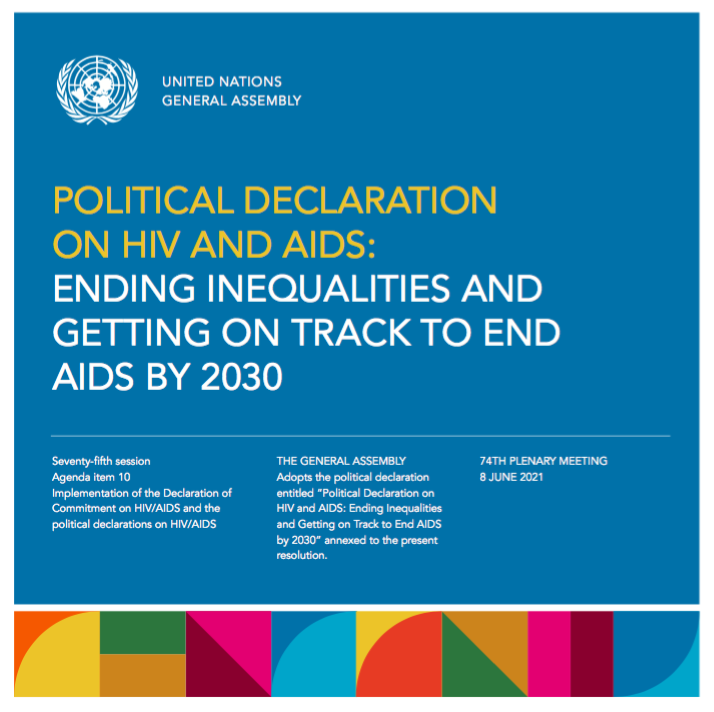
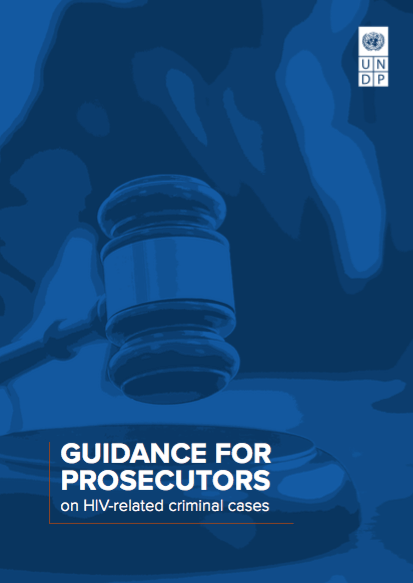 Guidance for prosecutors on HIV-related criminal cases.
Guidance for prosecutors on HIV-related criminal cases.
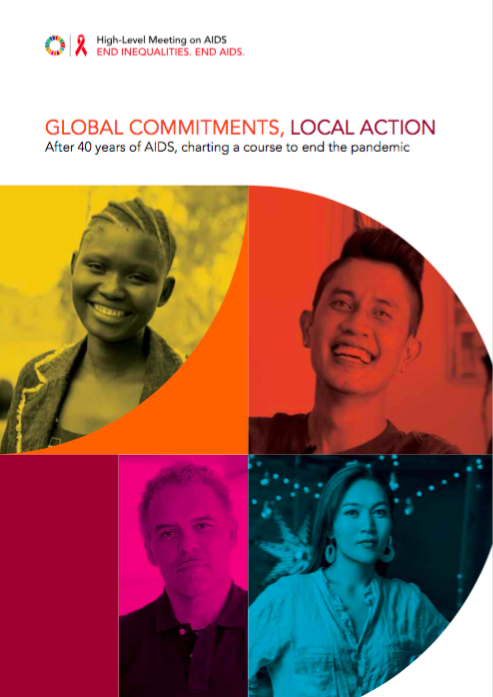 Global Commitments, Local Action. After 40 years of AIDS, charting a course to end the pandemic
Global Commitments, Local Action. After 40 years of AIDS, charting a course to end the pandemic
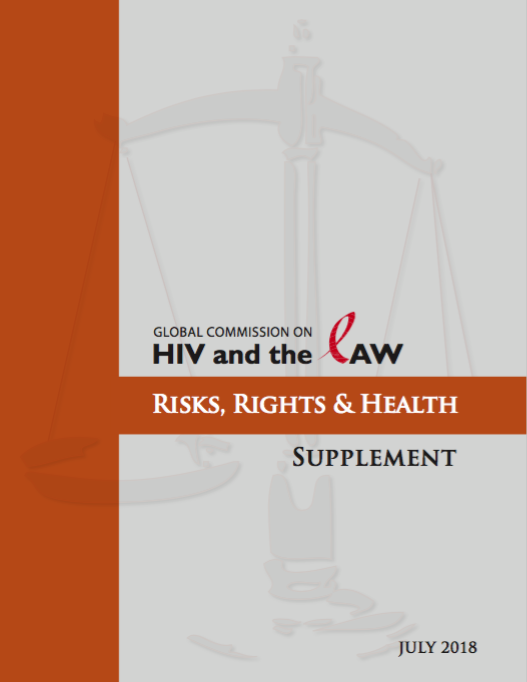 Supplement to the Report of the Global Commission on HIV and the Law “Risks, Rights & Health”
Supplement to the Report of the Global Commission on HIV and the Law “Risks, Rights & Health”
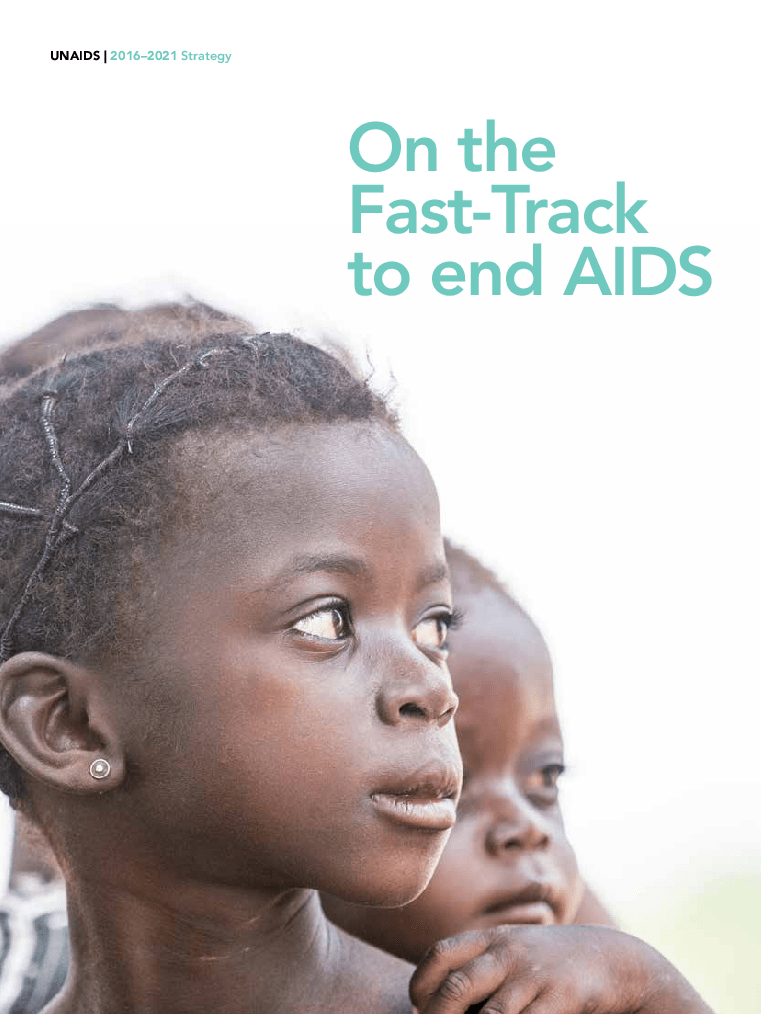 UNAIDS Strategy 2016-2021
UNAIDS Strategy 2016-2021